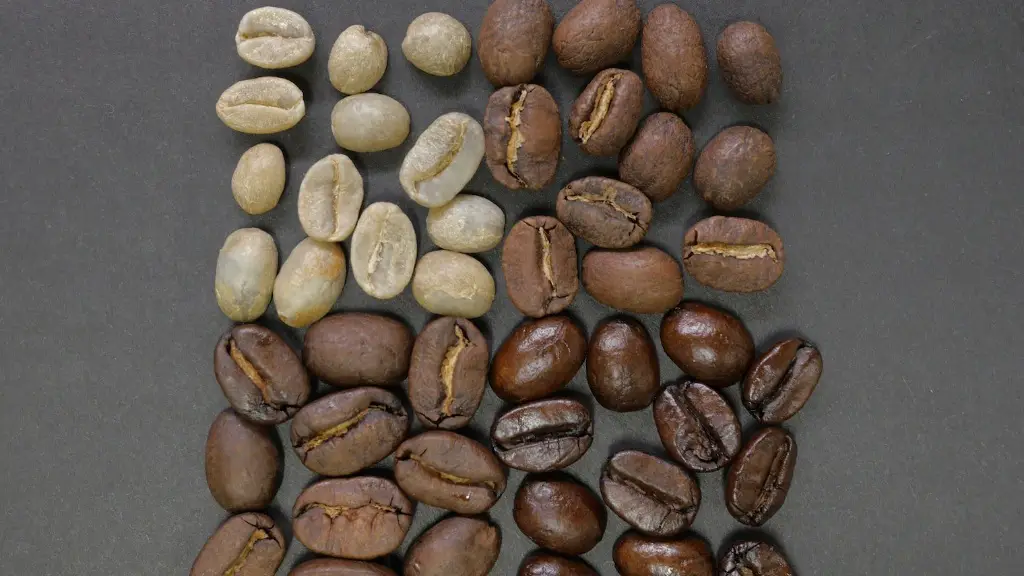Overview
Coffee is one of the most popular beverages around the world. It’s said to provide an energy boost and it’s widely consumed for its stimulating effects. However, regular consumption of coffee can be a double edged sword as it may also cause some unpleasant side effects, such as nausea. In this article, we will look into the reasons why coffee consumption can lead to nausea and potential health risks associated with it. We will also explore healthier alternatives and tips to reduce the possibility of experiencing nausea while drinking coffee.
Understanding the Mechanism
Nausea is a common adverse reaction to drinking too much coffee, or drinking it on an empty stomach. This is due to the stimulating nature of caffeine, which increases stomach acid production and makes it more difficult for food to move out of the stomach. As a result, the feeling of nausea can be felt when drinking coffee for long periods of time or drinking it on an empty stomach. Additionally, the caffeine found in coffee can act as a diuretic, which can further increase the feeling of nausea and lightheadedness due to dehydration.
Excess Consumption of Coffee
Drinking more than the recommended amount of coffee can also cause nausea. Generally, a moderate amount of coffee is considered about 200 to 400 milligrams per day, which is equivalent to two to four cups of coffee. Depending on the type of coffee and strength, different amounts of caffeine will be present.
Consuming more than the recommended amount of coffee, especially on an empty stomach, can put a strain on the body and stomach, which can lead to feelings of nausea and other gastrointestinal problems. Additionally, the high concentrations of caffeine found in some energy drinks, or when consuming large amounts of coffee over a short period of time, can stimulate the body too quickly, resulting in nausea and lightheadedness.
Individual Tolerance and Sensitivity
Everyone reacts differently when it comes to consuming caffeinated beverages. It’s important to pay attention to one’s own body, as individuals may experience different side effects from drinking too much coffee, depending on their unique biochemical makeup. Those who experience nausea or other adverse reactions to coffee should consider reducing their daily intake or switching to decaffeinated versions, as this will reduce the amount of caffeine consumed. Additionally, having food in the stomach before drinking coffee can reduce the likelihood of nausea.
Risks from Excess Coffee Intake
Regular consumption of large amounts of coffee can put a strain on the body, leading to potential health risks. These risks may include acid reflux, headaches, and a heightened risk of heart attack, stroke, or other cardiovascular events. Additionally, long-term studies have shown that those who consume more than five cups of coffee per day may have an increased risk of illness, such as cancer and diabetes.
Healthy Alternatives
If you experience nausea from consuming coffee, or if you want to reduce the amount of caffeine you consume, there are many alternatives that provide the same stimulating effects while being healthier. For example, herbal teas, such as green tea, black tea, or oolong tea are all healthy alternatives to coffee. Additionally, switching to decaf coffee can reduce the amount of caffeine consumed and can even provide some health benefits, such as reducing inflammation and aiding in weight loss. It’s also important to stay hydrated, as dehydration is often the cause of nausea.
Tips to Reduce Nausea
If you experience nausea after drinking coffee, there are some steps that can be taken in order to reduce the likelihood of feeling sick. Firstly, try to limit the amount of coffee consumed. If this is not possible, switch to decaf coffee, or consider having food in your stomach before drinking coffee. Additionally, stay hydrated and reduce the amount of sugary/highly caffeinated drinks consumed. Lastly, if you feel lightheaded, dizzy, or nauseous after drinking coffee, take a break and take a few deep breaths in order to relax the body and mind.
Sensitivity to Stimulants
Consuming coffee can stimulate the body and mind, but for some, this stimulation can be too intense and can lead to feelings of nausea. Individuals react differently, so it’s important to listen to one’s body and adjust the caffeine intake accordingly. Additionally, caffeine can interact with certain medications, such as those used to treat anxiety or depression, so it is best to check with a healthcare provider before increasing or decreasing caffeine intake.
Dehydration
Dehydration is one of the main causes of nausea after consuming coffee. Caffeine is a diuretic, which means it increases urine output and can lead to dehydration if not enough water is consumed. To counteract this side effect, it’s important to stay hydrated throughout the day and drink plenty of water before and after drinking caffeinated beverages.
Lifestyle Changes
In addition to staying hydrated and limiting caffeine intake, certain lifestyle changes can help reduce the likelihood of nausea from drinking coffee. These include avoiding heavy meals before or shortly after drinking coffee, as well as avoiding other stimulants, such as cigarettes and alcohol. Additionally, if you experience nausea after drinking coffee, try to relax and take a few deep breaths in order to reduce any feelings of nausea or lightheadedness.
Conclusion
Drinking coffee can be a great way to boost energy levels, but it is important to take note of any adverse reactions that may be experienced. Nausea is a common side effect of drinking too much coffee, especially on an empty stomach. However, by practicing moderation, staying hydrated, and avoiding other stimulants, the likelihood of experiencing nausea can be reduced. Additionally, there are many alternatives to coffee that provide the same stimulating effects, such as herbal teas. Overall, it is important to pay attention to one’s own body and adjust the amount of caffeine consumed accordingly.


